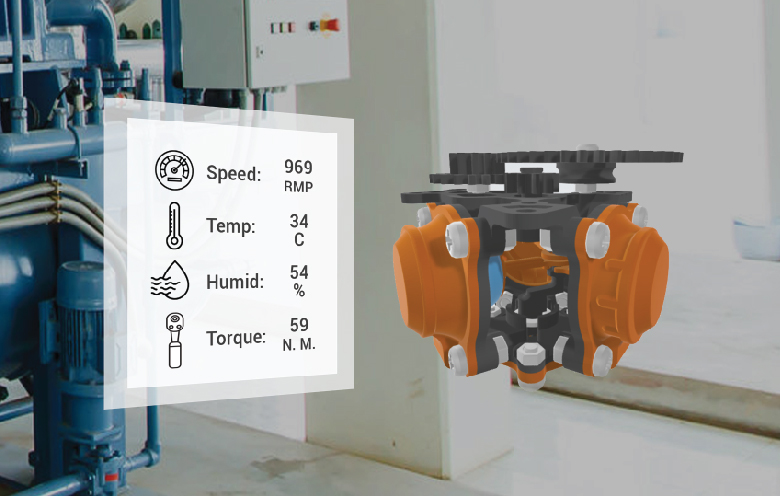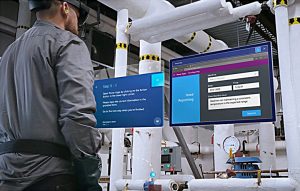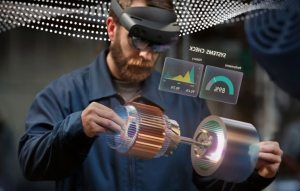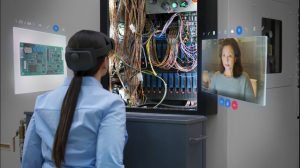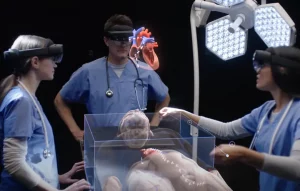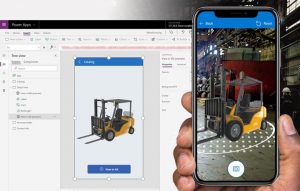Mixed reality (MR) has become one of the most popular technologies. The implementation and utilities of MR are much more than games and movies. Big players in the industry are constantly working towards enhancement of the technology and exploring its hidden potential every day. Though this technology is trending, and a lot of enterprises are making it available to common people, there are still certain challenges with its successful adoption and usage. These problems have obstructed the large-scale adoption of MR and developers are constantly working to resolve these issues.
Before moving ahead with MR implementations, let’s understand the main challenges in MR adoption and how to address them for a successful deployment.
Let’s go through a few challenges that developers face with mixed reality development:
1. Limited hardware capabilities
Presently, every MR headset available in the market is made up of a huge piece of hardware which is quite expensive for common people. Instead, users can also use their smartphones or tablets for using MR applications, but again, the visuals are not displayed accurately in mobile MR applications.
There are certain sensors that are used in MR applications. Among these, for example, an accelerometer does not filter electric interference. Also, the smartphone cameras are designed for 2D capture due to which these cameras are unable to render 3D images properly. Therefore, the hardware in current smartphones needs to be enhanced for MR technology before it is made available for common people.
However, accelerometer readings can be improved with the use of exponential smoothing techniques. Also, the performance of cameras can be improved by using:
- 2D QR and bar-code markers
- Big landmarks to overcome GPS
The optimization of hardware is a crucial problem with mixed reality solutions for enterprises. Also, it becomes inconvenient to wear it on the head for longer durations. Developers in the industry are putting consequent efforts and attempting to fit everything in hardware that would be similar in size to a normal spectacle, striving to strike a balance between form factor and capabilities. So, we have certain hardware limitations to overcome which are being constantly worked upon. For example, how the HoloLens 2 is a significant upgrade to its predecessor.
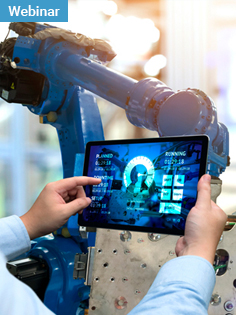
AR, IoT and AI – How HoloLens 2 is driving the future of industrial AR applications
Webinar agenda
- Industrial augmented reality applications and its importance
- Advancements in AR apps with Microsoft technologies
- Adding intelligence to industrial AR apps
- Integrating AR app with SmartEdge Industrial IoT Gateway
2. Software problems
Coming on to the software part, there are certain interoperability issues that need to be addressed. Several MR vendors have reported that there are privacy issues in their MR applications. Furthermore, the technology is evolving constantly, and it has been a very short duration since the solutions to create scalable MR applications have been developed.
Developers are experiencing challenges like complexity of integrating different systems and technologies, adapting to the developer’s kit of recently launched devices, etc. in the adoption of device SDKs that are launched lately. However, the mixed reality development tools present today provide a framework that is suitable for single-user interfaces, while functional multi-user experience tools are still required.
3. Dissatisfying experience and unawareness
MR technologies are so publicized that it has raised everyone’s expectations with the capabilities that these technologies would provide and hold.
On the other hand, MR technologies are hot topics of discussion amongst tech specialists, but users are not much aware of its advantages. Consumers are mostly only familiar with a few varied applications of MR like smart glasses that show immersive wardrobes or mobile AR games, etc. Hence, users must be informed about their other applications and benefits. Furthermore, users also doubt about privacy and security due to the lack of awareness, all of which need to be communicated and explained properly.
4. Cost of Proof of Concept development
Proof of Concept (POC) is the most practical way to get a project started for every business owner or an enterprise. It is all about placing business ideas and business models to understand the probable outcome of a project.
The development of a POC for an MR application/project involves extensive research, a skilful team of professionals and knowledge on hardware limitations. POC development is crucial as it helps business owners to identify how successful their project would be in terms of their expectations and goals when they evaluate crucial factors that help in the successful implementation of these technologies.
Moreover, whatever the estimate is for POC development, there would be a risk cost of unforeseen challenges and developers will have to overcome these challenges with great expertise and experience. The more complex the app, the more unexpected challenges and costs associated with it.
In the absence of expertise, there are high chances that a POC may go wrong, which would lead to loss of money and time and on top of that, all your efforts will leave you with no results. On the other hand, when you hire an expert team, they follow the best practices to develop products. Since they have experience in developing similar projects, you can be assured that you will get the expected outcome of your POC and project development.
Hence it is always advisable to work with an expert who has relevant experience and enough knowledge to save you from all the trouble and wastage of time and money so that you can go beyond the POC phase and achieve the benefits from a full-scale implementation.
5. Community acceptance and retention
Just like every evolving technology does, MR will also take time to be accepted by people. Though companies have already started investing in it, they must move ahead, keeping a long-term vision for achieving defined success. Today’s investment in MR technologies will reap them great returns in the future.
Regardless of the prevalence of MR technologies gradually increasing over the past few years, there is still a substantial issue in retaining its users for a longer period. At present, users download the application in excitement, use it for some time, may lose interest and stop using it because they are not much aware of its long-term benefits. Updating the app with newer features, functionalities and improvements and communicating them to the users can go a long way in retaining them.
How Softweb Solutions helps you to address the challenges mentioned in this blog:
We are Microsoft Mixed Reality Distributor Managed Partner offering the best MR solutions for remote assistance, product configuration, visual inspection, industrial training and more. Contact our experts to know more.
- Solve problems in real-time
- Bring contextual data and information into view
- Walk the site without being on location
- Interact with products in real-time with contextual data overlays
- Create 3D images of the product by prototyping virtually
- Have greater flexibility & mobile control
- Have seamless procedure monitoring
- Identify discrepancies to prevent defects
- View graphically animated content via AR markers and a lot more.
Conclusion
There is no doubt that mixed realities have evolved at a very high pace, and existing applications prove that with due research and development, successful large-scale deployments of the technology will become feasible. Also, the implementation of mixed reality solutions for enterprises will be beneficial for almost every industry. So, if you can foresee its advantages, keeping a big picture in mind, go ahead with adoption of mixed realities for your organization and talk to our experts to explore its benefits.


